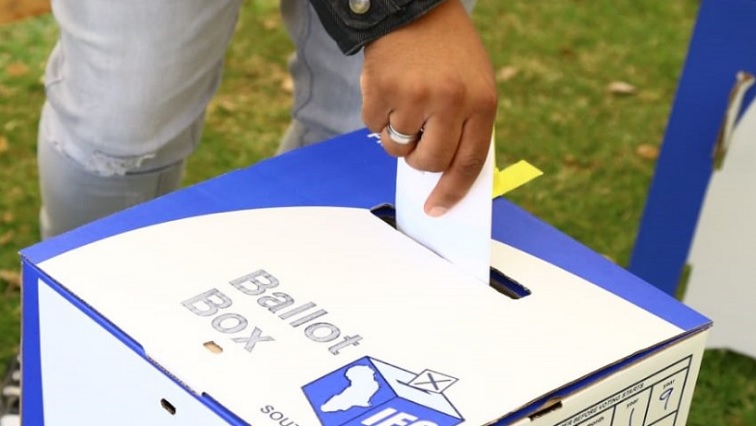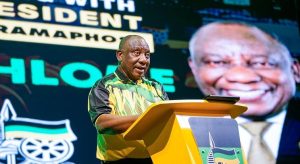The Constitutional Court judgment, which declared that independent candidates can contest the national elections, has been widely welcomed. Independent candidates were only allowed to contest local government elections previously.
The Apex Court ruling, declaring parts of the Electoral Act unconstitutional, was made earlier on Thursday.
The case was brought by civil society organisation the New Nation Movement and others. Parliament has 24 months to rectify the relevant Act.
In this video below, court declares parts of the Electoral Act unconstitutional:
The governing African National Congress (ANC) says it will study the ruling before commenting on it.
“The ANC will need to study the judgment and understand all of the issues that are stated so that when it files commentary out in the public it has fully appreciated all of the issues. There are interesting times ahead and it is important to study the judgment and understand the facts and be fully informed,” says ANC spokesperson, Pule Mabe.
The Democratic Alliance’s Interim leader, John Steenhuisen, says the ruling should trigger a debate on electoral reforms.
Good ruling by the ConCourt today, plurality of views and ideas is always good thing. This should however be a catalyst to trigger a broader debate on electoral reform to narrow the gap between the electors and the elected in South Africa and enhance democratic accountability.
— John Steenhuisen MP (@jsteenhuisen) June 11, 2020
One South Africa Movement leader Mmusi Maimane has described the court’s decision as historic, saying it is a victory for democracy and the nation.
“It is a historic moment indeed because it gives effect to what democracy is. It defeats state capture that is born out of party capture, because people capture a party, the state and corruption is the natural outcome from that. It is an opportunity for South Africans to be able to say we will bring change to our nation. It is democracy by the people, for the people – not democracy for the parties. It is a victory for the constitution, future generations and our nation,” says Maimane.
The Economic Freedom Fighters says the ruling means the country will have true reflective participation in elections.
“As the EFF we welcome it. We think that this is essentially a part of what democracy should look like. We do not think that it is a threat in any way because what is wrong with independent candidates contesting? It is part of democracy. We think it means that we will have a true reflective participation in both voting and contestation,” says the party’s National Spokesperson, Vuyani Pambo.
The Congress of the People (COPE) has also welcomed the new chapter in South Africa’s democracy. Party leader Mosioua Lekota says it gives South Africans full power to correct the wrongs that have been committed since the dawn of democracy.
The Freedom Front Plus is calling for the amendment to the electoral system to be approached with caution.
“In the accommodation of independent candidates, the governing party can misuse its majority to amend the electoral system in such a way that they will get more seats in Parliament with less voters. We must also remember that it is not the electoral system that ensures accountability from representatives towards the electorate. That must be ensured by the political parties. It will also not be easy for independent candidates to be elected; they will need a lot of money and infrastructure to obtain enough votes to get a seat in Parliament and that will not be that easy,” says the party’s Dr Pieter Groenewald.
Various party reactions in the video below:
The Independent Electoral Commission (IEC) is also pleased with the ruling. It says it will require extra cash from National Treasury to fund an electoral system that includes independent candidates contesting for national and provincial elections. Chief Electoral Officer, Sy Mamabolo, says they will work with Parliament to implement the new rules.
“As an Electoral Commission, we have a huge role to play because we have the technical expertise relating to elections and electoral systems. So we stand ready to support Parliament in its endeavour to grapple with the implications of this judgment. Our internal systems have always been predicated on delivering an electoral system, which is based on party lists. So a new wave of investment, which will have to be made by National Treasury,” says Mamabolo.
National and Provincial Elections–Quick facts
- South Africa’s national and provincial elections take place every five years.
- Voters vote for a political party, not individuals. The political party then gets a share of seats in Parliament in direct proportion to the number of votes it got in the election.
- Each party then decides on members to fill the seats it has won. This is called a proportional representation (PR) voting system.






